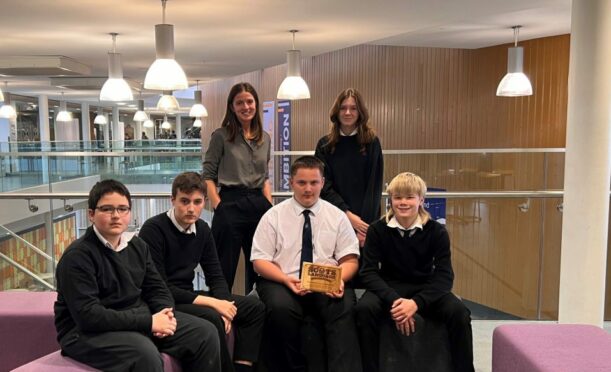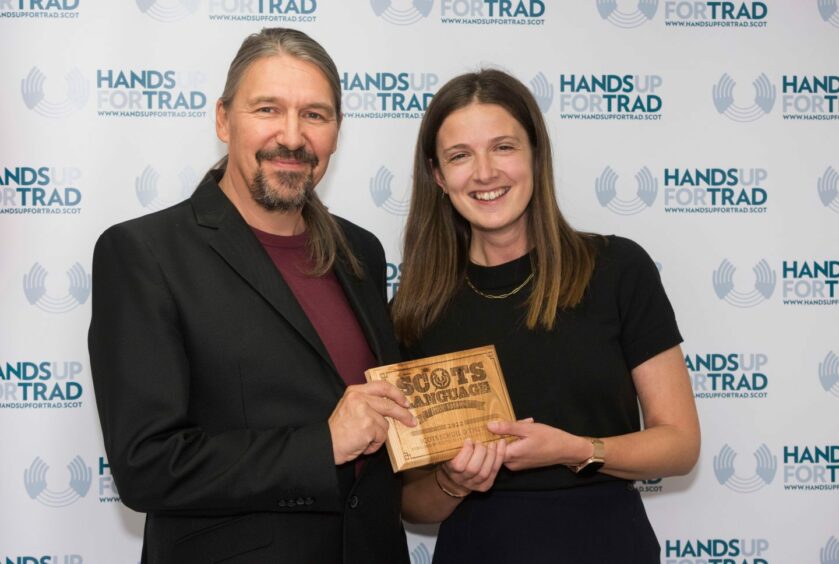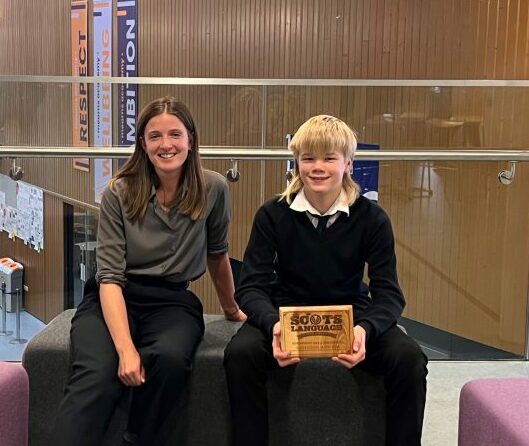Mearns Academy has been crowned Scots School of the Year in 2022 for its students work in keeping Doric Scots alive.
Renowned Scots author Lewis Grassic Gibbon grew up in the Mearns. His famous novel Sunset Song is partly set there and the Scots language features throughout.
The first lesson that Mearns Academy’s Rosie Bircham tries to teach her students is that Scots is a language in itself, and not just a dialect of English.
Her message resonated with one of her classes at Mearns Academy, who are now determined to get Scots back in the conversation.
Weel duin tae Mearns Academy
After coming away with a prize from the Scots Radio 2022 Doric Film Festival, they picked up the school of the year title from the Scots Language Awards.
Now, they want to use their success as a platform to get Scots out of the shadows and into more classrooms and more homes.
Mrs Bircham said that Scots, especially the Doric dialect from the north-east, is slowly becoming a thing of the past.
Stigmas around the language being “informal”, misunderstandings about its status and a general reluctance of young people to pick it up are all working against it.
“At the awards ceremony, so many people were saying this is our tongue, we grew up with this,” she said. “But it’s a bit different with us: We lost it, and we’re trying to build it back up again.”
Lost but not for good
Mrs Bircham, born in the central belt to English parents, arrived in Aberdeen for university and hasn’t left the north-east.
She fell in love with the idea of a local language, especially one with such strong cultural and literary connections to the Mearns.
And instead of being a barrier, she’s found that her relative newness to the language is helping her connect with students.
“The fact that I don’t speak it puts me in the same camp as a lot of the kids. It feels quite nice teaching Scots to kids who are English, or who don’t speak English as a first language. I can say we’re all doing this together.”
‘Scots deserves a life beyond a novelty tea towel’
She would love to see Scots get its own resurgence the way that Gaelic is often promoted in the public sphere.
“Gaelic is obviously an essential language we don’t want to lose. But it’s actually mostly spoken on the other side of the country,” she said.
“When you see Gaelic on signs over here, you think that’s fantastic. But Scots is actually the primary spoken language after English in this region, and you just don’t see it very often.
We lost it, and we’re trying to build it back up again.”
-Rosie Bircham
“You see it in gift shops, on souvenirs and things. It’s very twee, and not really taken seriously.
“Because Scots has ties to the English language, there’s a feeling that it can just sort of fade out. There’s not the same fear of it being lost.
“It deserves a life outside of a novelty tea towel.”
Give Scots a chance
Sam Oag, one of Mrs Bircham’s S3 students, started learning Scots last year.
He said that learning lines for the Doric Film Festival had helped him. He wants to keep learning and hopes to get more people interested in Scots.
“I hear it here and there, but not as much to speak it regularly. And it’s good that we got the award and can bring some more awareness to it. I really enjoyed learning it, because I think it’s a really cool language.
“Now that it’s brought more awareness to the school, I think we’re going to try to learn more and revive it.”



Conversation